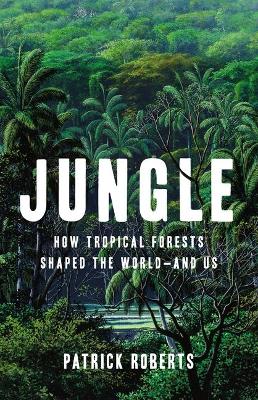Reviewed by Jeff Sexton on
But then we get into the first millennium ish AD and Roberts turns his focus to the native populations of the Americas - and blaming Columbus specifically and Europe generally for every ill to come since. Even while noting cases where conquest would not have been possible except that certain elements of the native populations betrayed other elements for their own personal power. Ok. Still has some solid points about the interrelationship between humans and jungle here, but even here the politics is quite heavy handed - though admittedly typical for elitist academics and perfectly in line with that level of thought.
Coming into much more recent times - within my lifetime ish, since the 1980s - Roberts goes deeper into the politics, even openly praising Greta Thunberg (a bit ironic, given Roberts' own actual academic pedigree vs Thurnberg's lack of one). But worse than that, he actively gets a bit lax with his scholarship through this point, noting the spread of Ebola into the US during the 2014-2016 West Africa outbreak... without acknowledging that it was (mostly) active - and *safe* (as safe as anything *can* be with Ebola) - efforts by the US government to bring US nationals back to within the US for treatments. Instead, the implication from the author is that this was more direct results of lackadaisical regulations and rampant environmental destruction. He also (accurately) notes the 3,000 people killed by Hurricane Maria in 2017... without noting that Hurricane Irma had come through many of the same regions as an even stronger storm just two weeks prior, causing quite a bit of damage that ultimately led to a larger loss of life than normal when a second major hurricane (Maria) came through so soon after. (Disclaimer here: I moved to northern Florida in August 2017, barely a month before Irma and barely 6 weeks before Maria. I had a planned cruise in November 2017 to San Juan and St Maarten, among others, moved to Aruba and Curacao due to the combined effects of the two storms.)
Finally, in perhaps the most glaring questionable fact in the entire text, Roberts points to COVID-19 case counts "as of the end of July 2021". Except that I'm writing this review on July 15, 2021, almost exactly halfway into the month down to the minute, and I've had this book in ARC form since May 12, 2021. (And I should note that this book appeared to be mostly completely print ready at that time, though the publisher and author may claim that there were indeed a few more edits since that point.) Even if one assumes that this particular line was placed in the book by say May 10, at the very latest stages before making it available on NetGalley (where I got it), and even if one assumes that the actual number at hand is accurate (I have no real reason to doubt it, though I personally stopped paying attention to these particular numbers over a year ago), wouldn't it have been better scholarship to note that the case count was "as of the end of May 2021"? Or was the author projecting and hoping this either wasn't noticed, that he would be proven correct prior to publication (still almost exactly two months away, as this book is currently shown to publish on September 14, 2021 at the time of writing this review), or that this particular fact could be updated prior to publication with the actual number? None of those three options point to the same level of scholarship of the beginning of the book, and indeed the fact of their existence brings into doubt all prior points and presumed merits. Thus, including that particular fact ultimately does more harm to the entire text than even the most blatant of political biases displayed earlier in the text.
Still, ultimately this was a very approachable text that even when taking into account its standard academic biases generally presents an intriguing look into the history and development of humanity, and it actually has a respectable bibliography, clocking in at around 26% of the text. Thus the book is still ultimately recommended for that alone. Just... make sure you read other competing books in the same area in addition to this one.
Post Script: While looking for the author's website for the blog version of this review, I found out that the author is indeed a seeming expert *in prehistoric jungles*, having published several articles in peer reviewed journals over the last decade. But nearly every single article listed on his website deals with the prehistoric era, which perhaps explains the difference in how excellent this particular book was when it was discussing this particular era vs the problems that began mostly when he left it. Which is leaving me, for one, *very* interested in a follow up book expanding on the first half of this one with even more details, perhaps, of the environments, fauna, and flora of these prehistoric eras the author seems to know so well.
Reading updates
- Started reading
- 15 July, 2021: Finished reading
- 15 July, 2021: Reviewed
